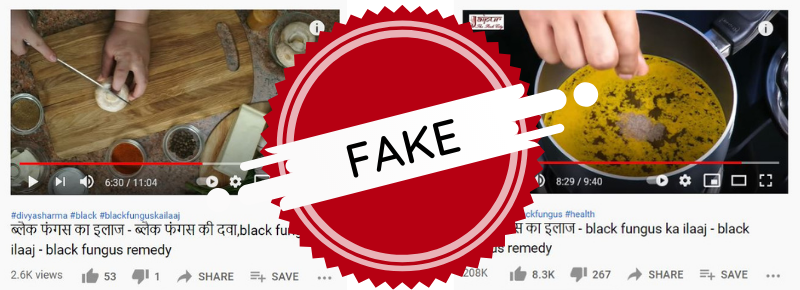Challenges and strategies in combatting health misinformation in the Philippines – An Excerpt From First Check’s Coffee Table Book
- admin / 1 year

- 0
- 3 min read

Fact-checkers face resistance and legal threats from companies, making collaboration between media and health experts essential for debunking false health claims and educating the public.
“Companies engaged in promoting unverified health products may view fact-checkers as obstacles to their business goals. This can lead to legal threats and lawsuits.”
In the Philippines, misinformation runs rampant, from dubious medical claims about cancer to unfounded conspiracy theories, especially exacerbated by the pandemic. As a fact-checker addressing medical misinformation, I see that the landscape poses unique challenges. Fact-checkers, especially those focused on health, often encounter resistance and accusations when debunking false claims promoted by companies peddling questionable health products. This backlash stems from a complex interplay of commercial interests and public perception.
Companies engaged in promoting unverified health products may view fact-checkers as obstacles to their business goals. This can lead to legal threats and lawsuits, creating a challenging environment for those striving to uphold accuracy and public well-being.
In my region, there are three major health misinformation issues. First, the promotion of unverified medical products by celebrities and influencers. This trend can mislead the public, as individuals may be swayed by the influence of well-known figures, leading to the potential use of ineffective or unsafe products. Fact-checking plays a crucial role in debunking these claims and providing accurate information to protect public health.
Second, health-related scams leveraging artificial intelligence (AI) have become prevalent. Misleading claims about AI-driven medical solutions or treatments can exploit people’s trust in cutting-edge technology. Fact-checkers need to scrutinise these claims, ensuring that the public is well-informed about the actual capabilities and limitations of AI in the health sector.
Another significant problem involves misinformation surrounding alternative health practices. Unverified claims about unconventional treatments or remedies are gaining traction, potentially leading individuals to forego evidence-based medical interventions. Fact-checkers work to dispel myths surrounding alternative health practices and promote a balanced understanding of their efficacy and safety.
At First Check, I’ve witnessed benefits of the collaboration between media professionals and health experts in tackling health misinformation. Media professionals, armed with their storytelling skills, ensure that information reaches the public accurately and comprehensively. On the other hand, health experts provide the necessary depth and context to ensure the nuances of medical information are accurately conveyed. The joint efforts often lead to the development of educational campaigns and resources designed to address specific health myths and misconceptions.
Over the past few years, we have seen media outlets, fact-checking organisations, and public health authorities intensify their efforts to debunk false claims and promote accurate information. There has also been a growing awareness among the public about the importance of verifying information from reliable sources, contributing to a more informed and discerning audience. These are encouraging steps in the right direction.
This is an excerpt from First Check’s Coffee Table Book, you can read the full Coffee Table Book here.
John Aloyzeus Reotutar is a Biologist & writer, Philippines and is a member of the First Check team of Experts.










